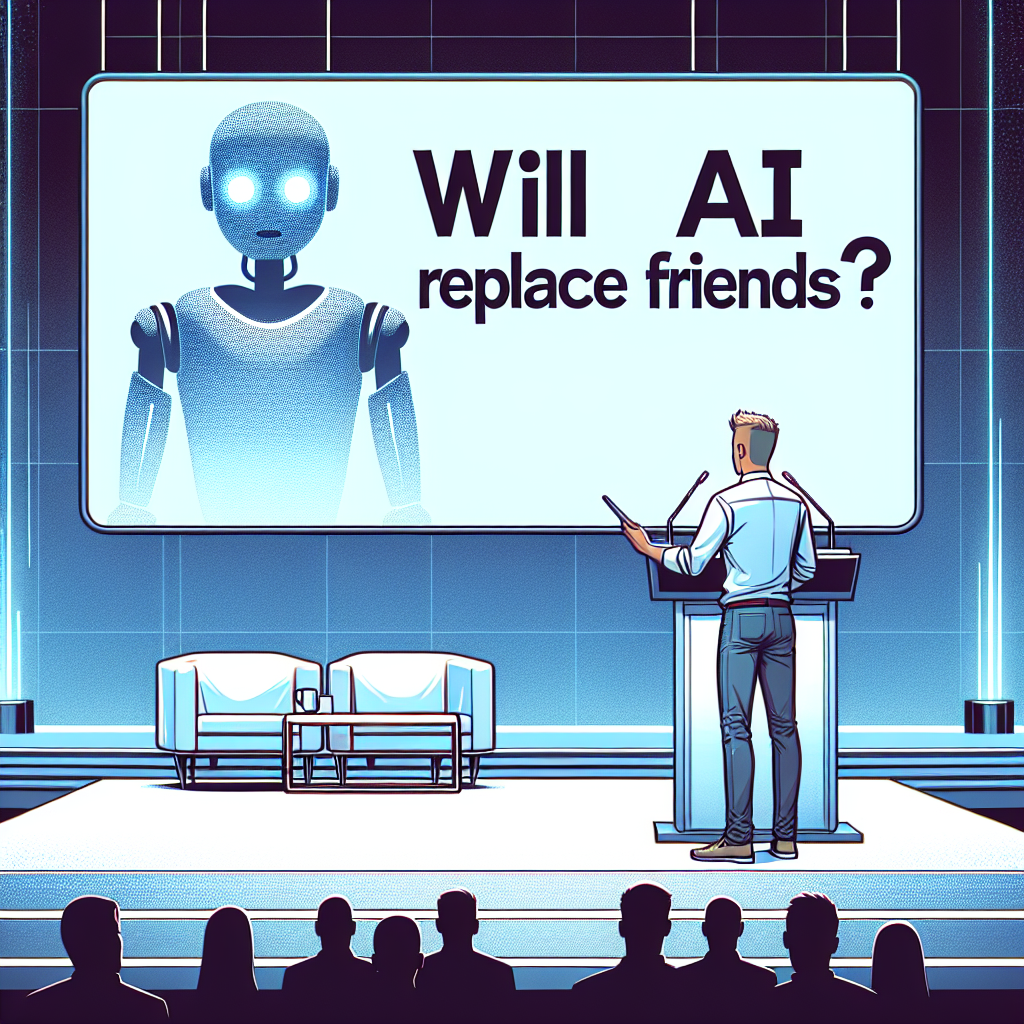Zuckerberg Discusses AI Replacing Friendships
In the 1970s, futurists confidently predicted that by the year 2000, robots would be doing our laundry, babysitting our children, and even serving as emotional companions. Fast forward to the present, and while your washing machine still requires a human touch, artificial intelligence (AI) is beginning to show capabilities that are eerily close to replicating real human interaction. This reality has prompted tech leaders like Mark Zuckerberg to weigh in on a pressing question: Will AI ever replace real friendships?
Zuckerberg: AI as a Complement, Not a Substitute
At a recent event, Meta CEO Mark Zuckerberg addressed growing concerns around AI-powered chatbots and how they could affect social dynamics. He clarified that although AI technology has advanced dramatically—thanks in large part to Meta’s ambitious AI projects—it isn’t intended to replace human relationships. Instead, Zuckerberg emphasized that AI can serve as a “supplement to real connection,” helping users feel more supported, especially in moments when no people are around to turn to.
“I don’t think it’s healthy to replace real friends with AI,” Zuckerberg stated. “But if you’re sitting alone, and you need someone to talk to, having an AI who’s supportive is a lot better than being alone.”
Meta’s AI Ambitions
Zuckerberg’s comments come on the heels of Meta’s recent AI developments, including the rollout of Meta AI across its suite of platforms—Facebook, Instagram, WhatsApp, and Messenger. With these integrations, users can interact with conversational AI models developed in-house, including the latest release based on Meta’s LLaMa-3 language model.
These chatbots are capable of helping with everyday tasks, offering companionship, or simply sharing a laugh. Yet, Zuckerberg remains cautious about their psychological and sociological impact, maintaining that digital empathy should not eclipse the irreplaceable value of real-world relationships.
The Rise of Digital Companions: A Social Trade-off?
As AI becomes more integrated into daily life, its ability to mimic empathy, humor, and companionship raises crucial societal questions. While some users may find comfort in AI-generated interactions, experts warn that an over-reliance on digital companionship could have unintended psychological consequences, such as emotional detachment or social isolation.
Zuckerberg acknowledges this fine line, noting that while AI can offer support, it should not become a person’s primary form of companionship. Rather, its strength lies in accessibility and availability—filling the gaps when human connection isn’t immediately possible.
Key Takeaways
- Zuckerberg discusses AI replacing friendships in the context of Meta’s expanding AI initiatives.
- He stresses that AI should supplement, not replace, real human relationships.
- Meta AI is now available across Facebook, Instagram, WhatsApp, and Messenger, using its latest LLaMa-3 model.
- While AI companions can offer support, experts and industry leaders caution against relying on them for deep emotional fulfillment.
Looking Ahead: A Hybrid Future of Connection
As the lines between human and AI continue to blur, it’s clear that the technology is here to stay. Rather than fear it, Zuckerberg encourages us to be thoughtful about how we integrate AI into our social lives. The goal isn’t to replace friendships but to enhance our ability to stay connected, supported, and emotionally grounded—especially during moments of solitude.
To read the full article from which this discussion originated, visit the original coverage on the Times of India.

